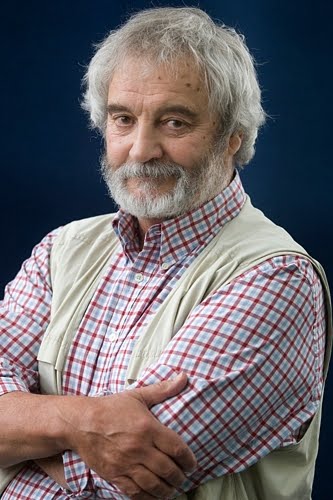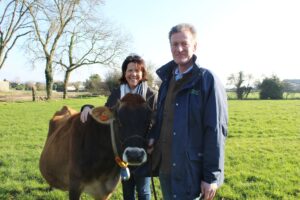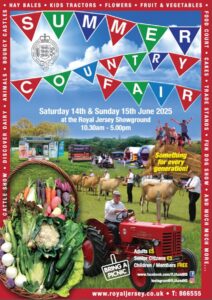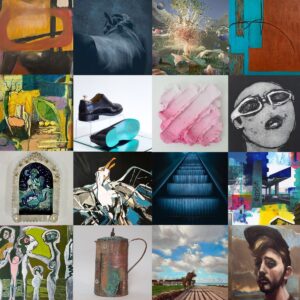
This is taken, with the kind permission of the author and website blogger, Colin Tudge, from his website www.colintudge.com, on which there are plenty of other worthwhile goodies to read and to reflect upon
‘How many goodly creatures are there here!’ -Miranda from The Tempest (V.i 184-187)
It is fashionable to care about the natural world – or at least to pretend that we do; and interest tends to focus on what has become the buzz-word, ‘biodiversity’. Indeed, in its Environment Act of 2021 the British government required developers ‘wherever possible to protect existing habitats and ecosystems’ and to this end they floated the idea of ‘biodiversity net gain’.
This sounds good. Or at least it can be made to sound good enough to sway a few votes. It does at least sound serious, as if the government and indeed the developers really are concerned about the natural world and have a well thought-out strategy to keep it in good heart – and have a handy way of measuring improvement, by counting the number of species.
Somehow, though, the concern expressed by governments like ours, and the corporates, and financiers, and indeed by all the people with most influence in the world, doesn’t ring true. Their strategies seem inadequate, and the faith that some voters and consumers have in them seems misguided. The grand plans and the solemn treaties multiply while the world continues to burn and flood and our fellow creatures continue to die hand over fist and human despair is such that millions are obliged to flee their homes, only to find that there’s nowhere tolerable to flee to. Somehow one feels, deep down, that the hearts of the policy makers aren’t really in it. They have a different agenda – which, in a nutshell, is to maximise the wealth and power of the family or nation or race or class to which they feel they belong.
Truly to put things right we need to re-think everything we do and take for granted from first principles on all fronts – which indeed is the theme and the agenda of this whole website. Nothing less than a Renaissance will do. For now, though, I’d just like to address the particular buzz-word – ‘biodiversity’.
In a series of blogs over the next few months (or as long as it takes) I want to address the most fundamental questions which those who make policies and shape the affairs of the world never seem to get round to asking. Such as — what exactly is biodiversity? Why should we give a damn? What do we really need to do if we do give a damn? Can we really put things to rights with slogans, like “biodiversity net gain”, or do we need to dig deeper? How much deeper? Do we just need more science, or a different kind of agriculture, or a few adjustments to the economy?
All of those things, certainly – but also much more. Most fundamentally of all it’s a matter of mindset. We need to ask, seriously, what exactly in this world we are trying to achieve and why. And if we decide after due contemplation that we really would like the human species to survive in tolerable form for more than a few more decades, and if we really do decide that we would prefer to live in harmony with our fellow human beings and our fellow creatures, then we need to ask whether any of our present strategies, or any of the big ideas we now take for granted and which dominate the world in any field of thought or endeavour are really what’s needed.
So, very presumptuously no doubt (but why not?), over the best few months or however long it takes I want to address these questions in a series of blogs – which, taken together, will in effect be a book in serial form. After all, that’s how Charles Dickens published his novels and if it worked for him, why not for this website? So here is the list of blogs to come (or that at least is the intention):
1: THE GOAL
Governments are forever producing plans and policy statements, strategies and manifestos – but what are they really trying to achieve, and why? Governments like ours are fixated on endless material growth – but to what end? A Jacuzzi on every patio? What is their vision? What is their Goal?
I suggest our Goal should be ‘to create convivial societies, personal fulfilment, and a flourishing biosphere’. All three are important and interdependent. If one fails, the whole structure collapses – like the legs of a three-legged stool.
These blogs are focused on the third of our desiderata — the biosphere; the living world; with special reference to diversity.
2: A FLOURISHING BIOSPHERE
As a very rough approximation, the more diverse an ecosystem is, the more resilient it is; the better able to adapt to changing circumstance and to bounce back after a setback. But diversity isn’t all that matters. Abundance matters too but what matters most is interactiveness. As Hamlet said (Act 2 Scene 3), ‘The play’s the thing’. Vital though it is, the diversity is only the cast list.
3: HOW DIVERSE IS DIVERSE?
We need diversity at all levels: diversity of species; diversity of genes within species; diversity of habitats; diversity of ecotypes; and so on.
But the diversity of species is the most obvious thing to measure and so we should ask —
4: HOW MANY SPECIES ARE THERE?
Nobody knows is the answer, even to within an order of magnitude, although many biologists agree that about 8 million is a reasonable guess – of which fewer than two million have been properly described, or at least named.
But we never can know, exhaustively, how many species there are in any one wild habitat, and still less in the world as a whole. As further discussed in episode 10, we must learn to live with uncertainty and try to do good things even in the absence of perfect knowledge.
5: WHO IS RELATED TO WHOM?
Charles Darwin suggested that all Earthly creatures must be descended from a common ancestor. Modern studies suggest that this hypothetical ancestor was in truth a coalition, initially of different molecules with different origins and later a series of coalitions of different organisms. But Darwin was surely right in essence — which means that all Earthly creatures are literally related, each different organism a scion of a single worldwide dynasty. Mushrooms are our metaphorical cousins and plants are our third cousins.
But how are they all related? How can we find out? Modern taxonomy, based on cladistic analysis of entire genomes, is providing some wondrous surprises. Some people seem to find taxonomy tedious but in truth it’s a snapshot of evolution – 3.8 billion years of Earth history, the entire dynasty of living creatures, laid out for inspection. Wondrous.
6: FROM TWO KINGDOMS TO THREE DOMAINS
The Swedish naturalist Carolus Linnaeus in the 18th century recognized two kingdoms of living creatures – Animals and Plants – with a third, his Regnum Lapideum, “the kingdom of the stones”, reserved for minerals. Modern taxonomists recognize three whole “domains” of living creatures – Bacteria, Archaea, and Eukaryotes; and Plants and Animals are just two kingdoms among 20 or so within the Eukaryotes. The pictures grows richer by the month.
7: THE EUKAROTES
Eukaryotes it seems arose as a coalition between a bacterium and an archaean and then through more coalitions with more bacteria to form the full complexity of modern eukaryotic cells, with a nucleus, mitochondria, cilia, chloroplasts – the whole gamut. We are brought up to believe that life is one long ‘struggle for existence’ from conception to the compost heap with every individual and every individual gene locked willy-nilly in all-out competition with everything else – ‘nature red in tooth and claw’ as Tennyson put the matter. In truth, though, while competition is an inescapable fact of life the essence of life is cooperation. The willingness and the ability to cooperate is the most universally effective survival strategy of all.
However, the main focus of this chapter is not on such philosophising but on the diversity of creatures within the eukaryotes, as now understood. In truth, the understanding is changing all the time. This is very much work in progress. But the insights so far are revelatory. For example:
8: THE MODERN VIEW OF MAMMALS
Mammals are only one class among half a dozen or so with the subphylum of the Vertebrata within the phylum Chordata; and the chordates are only one of at least eight and some would say nearer 40 phyla of animals which form only one among 20 or so kingdoms. (Whether you say 8 phyla or nearer 40 depends on how you choose to draw the lines). But the class of mammals is of more interest to most of us than, say, the phylum of the priapulids (18 known species of marine worms), and modern taxonomic studies based on genomes are again revelatory. It turns out for example that whales are close relatives of hippos (which some prescient anatomists had long suspected) and elephant shrews are related to elephants (which I don’t think anyone ever seriously suggested, though I’m open to correction. It often turns out that people in the deep past did think of things that seem entirely novel).
9: A MATTER OF ATTITUDE
To the neoliberals, which includes our government, everything is grist to the mill of profit. The natural world is seen as a “resource”, to be put to use; to be valued only insofar as it can be exploited. It’s often said that the correct attitude to the natural world should be one of stewardship rather than of exploitation – but although this would be a great advance on the western/ British status quo, it is not sufficient. We need to invoke and develop the Eastern concept of Oneness: the oneness of all humanity; and the oneness of humanity with the rest of nature; that, and the sense that nature really is sacred.
10: HOW MUCH DO WE REALLY KNOW? HOW MUCH CAN WE KNOW?
The fact that we cannot answer even the most basic question posed in chapter 4 (How many species are there?) ought to give us pause – and prompt us to ask, how much do we or can we know about anything? In reality, we are doomed forever to be ignoramuses, in the proper sense of the word. Originally, after all, ‘ignoramus’ did not mean ‘stupid’. It simply is Latin for ‘we do not know’; and we don’t know partly because we don’t have enough data (and data must always be incomplete) and partly because as a succession of philosophers have shown, no idea of any substance can ever be shown unequivocally to be true.
So in our attempts to understand the world and to live in harmony with our fellow creatures, we just have to do the best we can. We need a combination of science and intuition, both of which must be cultivated, underpinned by the bedrock moral principles of compassion, humility, and the sense of oneness. And to this end we need to reinstate metaphysics which, as its advocates are wont to say, asks ‘the ultimate questions. (See https://www.colintudge.com/the-big-idea/mindset/).
Where next?
So these are the kind of ideas I want to explore on my website over the coming months and years. I’ll write them in more or less random order depending self-indulgently on whim. As always, any comments you may care to make along the way will be most welcome; and if any publisher out there did feel that the blogs together would make a publishable book, that would be most pleasing too.’




